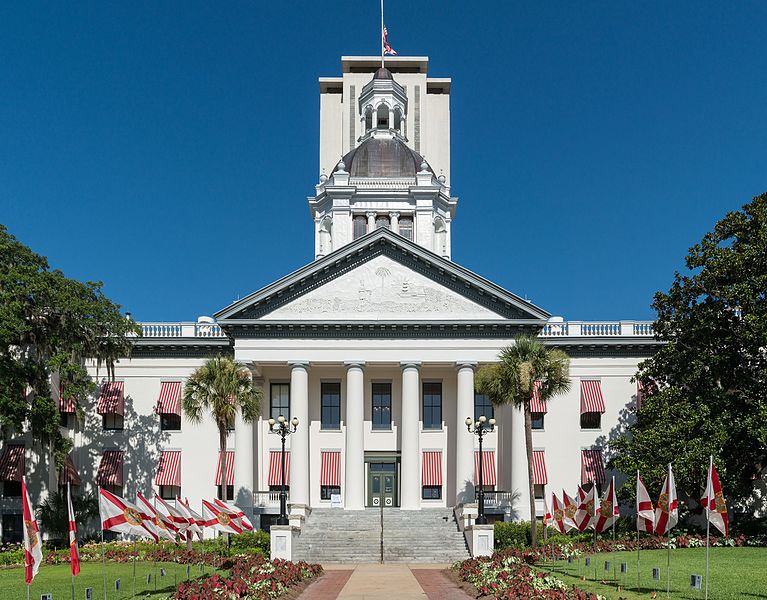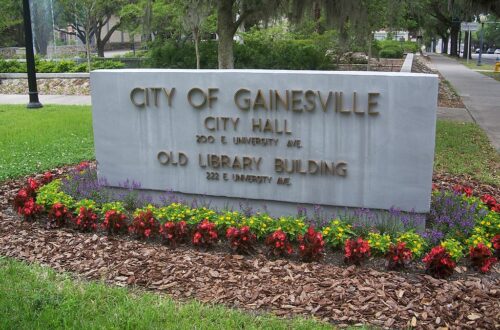Florida lawmakers are gearing up for a contentious redistricting process as the map dictating the state’s political landscape for the next 10 years may also carry national implications ahead of the 2022 midterm elections.
In January, the Florida Legislature will redraw district lines according to the recently released 2020 Census data. Between 2010 and 2020, Florida’s population grew from 18.8 million to 21.5 million, earning the state an additional congressional seat that will increase Florida’s delegation to the U.S. Congress from 27 to 28.
Redistricting is ideally a non-partisan process, and voting rights groups and anti-gerrymandering organizations such as Fair Districts Now are urging the Republican-majority legislature to abide by the guidelines established in the Florida Congressional District Boundaries Amendment passed in 2010. The amendment was passed with 63% of the vote and seeks to ensure “fairness” in redistricting by requiring lawmakers to abide by “city, county, and geographical boundaries” and create districts of as equal population as possible.
Congressional districts that conform to pre-existing geographical or municipal boundaries usually experience higher degrees of election competitiveness and in turn reduce the chance of any demographic group gaining outsized political influence.
Florida lawmakers have so far ignored calls for transparency and have held no public hearings or interviews to reassure the public that they will abide by the constitutional guidelines. In addition, only 17 of 160 state legislators have signed a petition for the map-drafting process to be live-streamed to the public, suggesting that a majority of both Republicans and Democratic legislators wish to keep deliberations behind closed doors.
All 17 legislators who signed the petition are Democrats.
Approval of Florida’s new district map in March 2022 is expected to prompt legal challenges, some of which will be heard by the state’s Supreme Court. Florida’s Supreme Court has become more conservative over the past few years, making it more likely that Republican efforts to gerrymander will hold. Governor Ron DeSantis, R-Florida, has appointed three conservative justices to the court since 2019.
Gerrymandering of Florida’s congressional districts has the potential to tip the balance of power in the state legislature and in the U.S. House further to the right. In the Florida delegation to the U.S. Congress, Republicans currently hold a 16-11 advantage over Democrats. Republicans also hold the governorship and enjoy comfortable majorities in the state Senate and state House.
Such control of the redistricting process means that Republican lawmakers can create a reliably red 28th district while fragmenting Florida’s historically Democratic districts in order to make them more competitive.
Especially vulnerable are District 7 held by Stephanie Murphy, D-Florida, and District 13 held by former Governor Charlie Crist, D-Florida.
The battle over Florida’s redistricting mirrors others taking place across the country, especially in Republican-controlled states such as Texas, North Carolina and Montana, which stand to gain congressional seats. The redistricting undertaken in these states may play a vital role in deciding which party gains a majority in the U.S. House in the midterm elections in 2022.
The stakes are further raised when considering several of the states losing congressional seats such as California, New York and Illinois — all leaning Democrat.
Widespread gerrymandering heightens the political influence of rural, Republican-leaning voters while fragmenting the urban Democrat-leaning vote. If Republican state legislators capitalize on the opportunity in front of them, the 2022 midterm elections may be decided before they even take place.
Check out other recent articles from Florida Political Review here.
Featured Image: The Florida State Capitol in Tallahassee, FL in 2016. Unmodified photo by Daniel Vorndran used under a Creative Commons license. (https://bit.ly/3oZMA6L)





